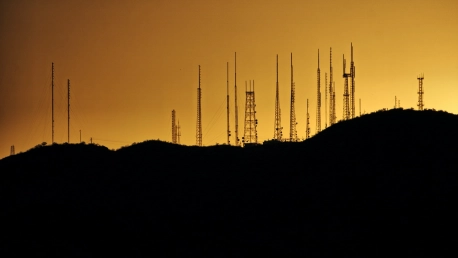In the midst of the COVID-19 pandemic, cities throughout the US have become empty. As a growing number of people shift to working from home while schools, restaurants, bars, and other businesses are closed, the major US wireless carriers are working to ease the burden on subscribers. From closing brick-and-mortar stores to cutting prices, it’s important to note that most measures are aimed at helping cash-strapped consumers stay connected and preventing the spreading of the pandemic.
How Carriers Responded
Let’s have a look at the approaches employed by each provider.
1. Verizon Prioritizes Response Agencies and Provides Additional GB Data to Customers
Verizon said that it’s “constantly monitoring data usage and the needs of our customers.” The carrier is allegedly more focused on ensuring that first responders in public safety, healthcare, and government agencies have access to networks. Nonetheless, the networks could become more congested than normal.
“We understand the hardships that many of our customers are facing, and we’re doing our part to ensure they have broadband internet connectivity during this unprecedented time,” said Ronan Dunne, CEO Verizon Consumer Group.
At the same time, the company announced that it will be adding 15GB of 4G data to current consumer and small business plans, in an effort to help customers use their handsets as mobile hotspots as needed. The company will also be taking $20 off select FiOS plans and waving router rental fees for 60 days.
2. AT&T Is Waiving Fees and Provides Free Services for Schools
“In response to the public health crisis, Access from AT&T is temporarily offering two months of free service to new customers who order Access by April 30, 2020; $5/mo or $10/mo thereafter, depending on your speed; expanding eligibility based on income and to households participating in National School Lunch Program/Head Start; waiving all home internet data overage fees”, according to AT&T’s website.
Moreover, the tech giant is offering free wireless data to school districts. Qualified schools that attach new lines to qualified data-only plans for school-issued tablets, 4G LTE-enabled laptops and hotspot devices will get the wireless data service at no cost for 60 days.
“We know that schools and universities across America are grappling with the impact of COVID-19 and that moving the classroom into the home requires access to the internet for all students,” said Mo Katibeh, EVP-chief marketing officer, AT&T Business.
3. T-Mobile Provides 60-Day Unlimited Data on Mobile Plans
T-Mobile announced that it would be providing unlimited data on all mobile plans for the next 60 days. This includes T-Mobile and Metro customers. It will also be providing an additional 20GB of its mobile hotspot service for the next 60 days and is offering free international calls to any Level 3-impacted nations worldwide.
“Now, more than ever, as school and workplace closures are happening each day, reliable internet connectivity is crucial. The vast majority of customers on T-Mobile and Metro by T-Mobile plans already have unlimited talk, text, and data, and our T-Mobile Home Internet customers already have unlimited plans with no data caps or surcharges. But in these unique circumstances, access to unlimited data is more important than ever,” T-Mobile said in a blog post.
4. Comcast Provides 60-Day Free Service and Increases Overall Internet Speed
Comcast has increased the speeds of its Internet Essentials plan aimed at low-income earners as of March 16. This involves offering 60 days of free service, after which people will be charged $9.95 per month, while also increasing speeds on this plan from 15/2Mbps to 25/3Mbps.
“As our country continues to manage the COVID-19 emergency, we recognize that our company plays an important role in helping our customers stay connected – to their families, their workplaces, their schools, and the latest information about the virus – through the internet,” Dana Strong, president of Comcast Cable consumer services, said in a blog post.
5. Sprint Waives Late Fees and Provides Unlimited Data for 60 Days
Sprint is offering unlimited data for 60 days. The arrangement was launched on March 19. The carrier is also waiving late fees and will not terminate services if customers are unable to pay their bills due to the impact of the new coronavirus. Sprint also introduced free international calling for CDC Level 3 nations for customers with long-distance calling plans.
Furthermore, customers who don’t pay for mobile hotspot services will get 20GB per month for the next 60 days.
Brick-and-Mortar Stores Are Closed Throughout the US
The major US wireless carriers announced that many of their physical locations will be closed amid the coronavirus pandemic. These measures are intended to protect employees and adhere to social distancing guidelines for limiting the spread of the new coronavirus, which has infected thousands of people across all 50 states in the US.
AT&T announced it would close 2,200 stores, representing 40% of nationwide locations, and reduce operating hours at other locations. Sprint is also shutting down 71% of its retail locations. T-Mobile took more aggressive measures, shutting down 80% of retail locations and reducing the operating hours of the remaining stores.
Store closures along with supply chain disruptions due to the virus are already slowing the rate of phone upgrades, as many US consumers are likely to refrain from buying new phones altogether rather than transitioning from in-store to online.
Final Thoughts
According to the FCC, more than 550 companies and associations have signed the pledge to Keep Americans Connected. The initiative was launched by Chairman Ajit Pai in order to ensure that Americans do not lose their broadband or telephone connectivity as a result of these exceptional circumstances. This one attempt to keep the US connected as the impact of the pandemic has forced many to be physically distant.









